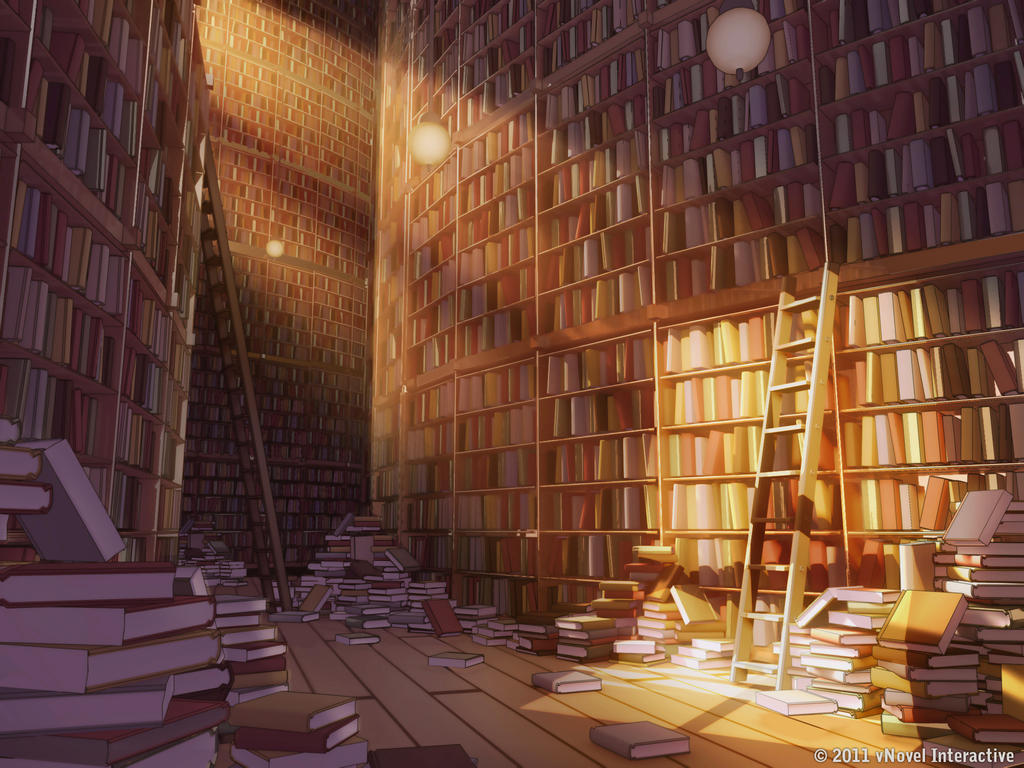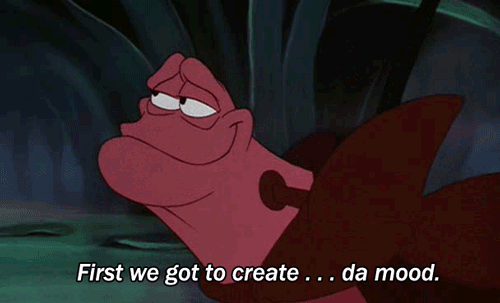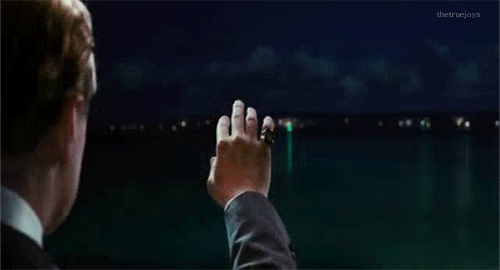Miss Blonde
Trying to be straight in a crooked Galaxy

Tips & Tricks To Better Your Writing
So as you may or may not know about me is that I am a huge movie/book/comics/TV/anime guru of all things vintage, nerd, and classical. I love everything from Franz Kafka to H.P Lovecraft, Miyazaki, and just everything in between. Now there is in no way enough time or space for me to get into all the ridiculous amounts of styles of writing and directing within these mediums. However I can give you a few tips on how to really make your writing pop and develop your stories so that you can make even the most seasoned of writers on this site look like babes lost in the woods.

The Baseline: Find your style!
So personally I draw a lot of inspiration from cinematography and film and I try to set up a lot of my posts as if you are watching a movie. However that can at times be difficult within a written format. So I like to take a lot of inspiration from directors like Tarantino and Fincher, but I also combine a lot of those styles with certain aspects of Lovecraft and Hemingway, now I'm nowhere as good as any of these people, but in taking what I love and what I'm familiar with I'm able to create this unique style all of my own. So that's a big thing when writing, what inspires you? What do you love and enjoy and want to make more of? This is the foundation of everything when it comes to our styles as writers and fans of great directors, animators, artists, and just creators all around. Find the creators who you enjoy and take pieces of their process and apply it to your own, that's how they did it, that's how the people before them did it, and that's how you do it. It's this beautiful Frankenstein's Monster sort of deal.

Tip 1: Character Positioning
So a great way to really establish a scene add more to it than what you are physically reading is character position and body language. While I know this is a Star Wars RP board, you always want to put in your best effort and make the best post you can. So this is a great way to get across things without saying them. For example, you can position two characters facing each other to show they have a mutual understanding of one another in a non hostile situation. Or you can have them facing away from one another, these are just basic little things. But if you really want to get tricky with it, you can really get in depth and have your characters sitting at a table, all their guns, papers, and whatever it is your accessory or plot device is all laid out nice and pretty between them. This can show that your characters and in sync with one another, they are all on the same mental note with each other. While you can also have characters standing casually, facing in different directions to show that they are the opposite of that. This allows the reader to pick this up without having to write. "Bob and John were all on the same page, they understood what needed to be done and were ready to carry out the task."
But continuing this is the use of body language. So if you couple this with character positioning and movement you have room for just a lot of great sub context and meaningful scenes and sequences. Nervous twitches, tapping feet, relaxed sigh, all of it really plays well into what you want out of your scene without having to obviously spell it out word for word with everyone.

Tip 2: Set The Mood
So this can take a while to get down and at times I too struggle with it. But this is a tip straight from H.P Lovecraft's work who is widely considered to be the father of psychological and at times physical bone chilling horror, and he does this by his use of his unique style to set the mood in a way no one else does.
"I could not help feeling that they were evil things-- mountains of madness whose farther slopes looked out over some accursed ultimate abyss. That seething , half-luminous cloud-background held ineffable suggestions of a vague, ethereal beyondness far more than terrestrially spatial; and gave appalling reminders of the utter remoteness, separateness, desolation, and aeon-long death of this untrodden and unfathomed austral world." - At The Mountains of Madness. H.P Lovecraft
So what do you notice about this small passage? Well I'll tell you, adjectives. Adjectives adjectives adjectives. USE THEM. These bad boys and girls will set the mood and send chills down your spine like nothing else. But be tasteful when using them as well, you don't want to go overboard or be too simplistic in nature like "The green fast giant speeder zoomed down the long dusty speeder lane." That's not a very good use of them. You want something more like.
"The dead eyed ravenous monster unleashed a bone chilling roar that could freeze that of the most fearless men. A demoralizingly tragic reminder that here on this savage world, man was no longer the top of the food chain." Me, just now off the top of my head.
These really help set up your scenes. So be artful in their use. But if you really want to get more into that Lovecraft style, I volunteer [member="Darth Carnifex"] because he has mastered it down to a freaking science in his writing. Plus he's a bigger Lovecraft buff than I'll ever reach.

Tip 3: Lighting
Lighting believe it or not is really big in written form as well. Although it translates a lot better in film, these are still really great ways for you to add depth and meaning in your scenes. So for example let's take the work of Gordon Willis into effect, and for those of you who don't know who he was. He's the guy who did the cinematography for The Godfather which is one of the most well shot movies ever made. He's also referred to as "The Prince of Darkness" not because of he worshiped Satan and sacrificed goats, not at all. It was because how he uses darkness in his scenes, how he shadowed some characters to imply their inner darkness or deadly intent. This can also be translated backwards through bright lighting in which you describe a character being covered in to imply their essential goodness. But sticking to Willis, he inspired directors like David Fincher, and if you aren't familiar with him he directed a lot of episodes of House of Cards, Fight Club, Girl with the Dragon Tattoo, The Social Network, and lots of other great thought provoking films.
Now we won't get into a lot of his style cause that would require a whole blog post, but we will discuss his use of shadow and lighting. Often times he paints his characters faces or scenes in low lighting or complete darkness. This can often be used to paint a dark view of the world in a nihilistic fashion, or once again go over the characters own internal darkness and struggle. And of course it can all be translated into writing without having to say "My character felt so and so and the darkness of his soul was closing in on him." So yeah, lighting is cool. Use it to really accent those scenes you are looking to make and you can even make it a recurring theme throughout the story.

Tip 4: Symbolism
I think this is easily my second favorite tip. Symbolism was sort of the jam back in the days of classic literature. You'd see a lot of it like in books you were forced to read back in high school. For example The Great Gatsby where the green light at the other side of the shore was a symbol of Gatsby's want and desire for his former lover. Or in Lord of the Flies the pigs head on a stick or "The Beast" as its referred to was a big symbol for the Devil/Beezlebub, savagery or if you really want to get Freudian about it, the Id which is base primal instincts of man to survive.
Powerful symbolism can be very important to have in threads and it really helps deliver on those messages you are trying to get across to your readers. Because while yes you are here to post about Star Wars and have fun, there are hundreds of people reading your posts and you want to give them a show. Not just for you, but to show that you are a lot of fun to read and write with. So use it to imply emotions, messages, thoughts, whatever really.

Tip 5: Hidden Meaning
Okay we're about to get all Hemingway up in this queen. So Hemingway was great in his uses of symbolism, but he was even better in his use of hidden meaning and context. So let's take The Sun Also Rises, a book that's arguably about four white dudes chasing around some loose French chick whose really into banging bull fighters. On the surface the book looks a lot like just a bunch of Europeans getting blasted and having a fun time, there are dramatic moments but it goes a lot deeper than that. If you look at it a bit deeper you realize it's a generation lost and the characters are there damaged people drinking and screwing to take the pain away. The pain that was inflicted by World War 1. The fact that it killed a lot of the values we thought we had as human beings that that through big enough tragedy and horror all these are superficial.
This is just a huge use of hidden meaning and depth and it has to be the most important part of your work as a writer. To let the reader pick it out and see it for what it is. Or perhaps to find their own hidden meaning, to really just explore and draw their own conclusions.

Wrap Up
There is so much more I can talk to you about, but there isn't enough time or space. So I hope that all of you found this enjoyable and if you have any questions or concerns then please feel free to talk to me and I will answer them to the best of my ability.




